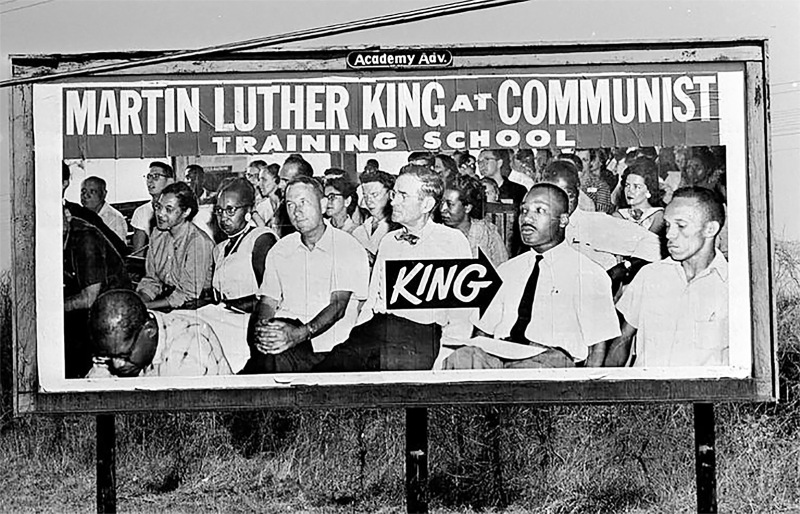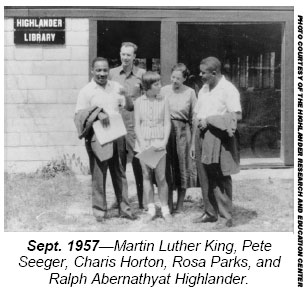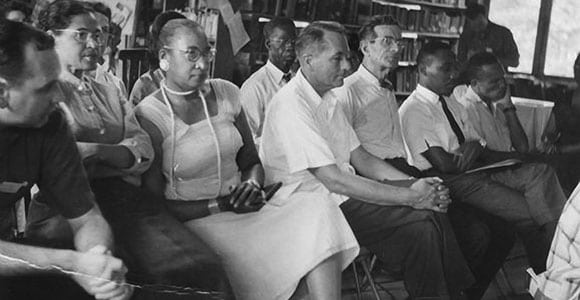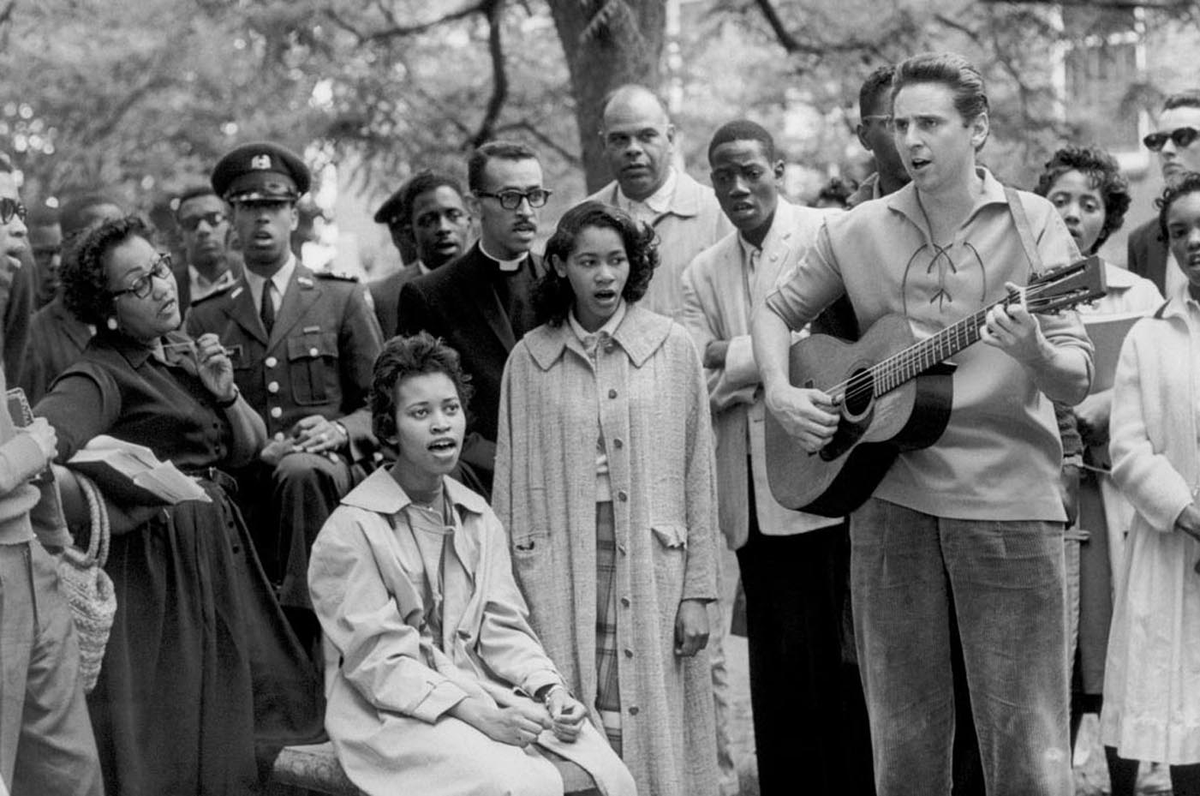MLK, Communism, the Highlander Folk School: How red-baiting continues to obscure the most potent elements of MLK’s message.
Many of you know the picture above, but fewer know where it was taken. It is the Highlander Folk School, a social justice leadership training school in Tennessee created to provide training and education for emerging left-wing movement leaders, primarily in the South.
Notable students include King, Septima Clark, Anne Braden, James Bevel, Hollis Watkins, Bernard Lafayette, Ralph Abernathy, and most of the leaders of SNCC.
Movement leaders held seminars to learn to about revolutionary political theory and practical organizing tactics. Rosa Parks began her direct action campaign after spending just two weeks at the Highlander.
The Highlander also housed folklorists and musicians. “We Shall Overcome” was adapted from an old gospel hymn at the Highlander. Pete Seeger was a frequent guest.
During the Selma march, John Birch Society members paid for billboards along the route showing King at the Highlander Folk School with labor leader Donald Lee West and other communists.
Throughout his life, King was regularly attacked on the basis of his communist sympathies. Many of these attacks were coordinated by the FBI, who leaked wiretapped conversations to right-wing reporters.
King himself never went full communist. But post-Marxist philosophy was the bedrock of his politics. Writing to his wife Coretta in 1952, King told her he was ultimately “more socialistic in my economic theory than capitalistic.” https://kinginstitute.stanford.edu/king-papers/documents/coretta-scott
Discussing Bellamy’s utopian socialist novel “Looking Backward,” which Coretta gave him to read, he wrote that “social systems don’t die over night,” and that “I don’t think [Bellamy] gave capitalism long enough time to die.”
He told Coretta, “Social systems have a way of developing a long and powerful death bed breathing capacity. Remember it took feudalism more than 500 years to pass out from its death bed. Capitalism will be in America quite a few more years my dear.”
As an aside, I find it charming that MLK and his wife wrote each other letters arguing over whether a socialist revolution was imminent.
King never embraced the international communist movement, bristling at its attacks on religion. King, a committed idealist, was likewise uncomfortable with dialectical materialism.
But while MLK wasn’t a revolutionary communist, he welcomed a socialist realignment, writing, “Our economic system is going through a radical change, and certainly this change is needed. I would certainly welcome the day to come when there will be a nationalization of industry.”
Even today, we hide MLK’s leftism. Like most great moral leaders, it is all too easy to reduce his work to childlike parable, ignoring his most fundamental pleas.
King hoped “we will live to see a warless world, a better distribution of wealth, and a brotherhood that transcends race or color. This is the gospel that I will preach to the world.” We would do well to listen.

 Read on Twitter
Read on Twitter








